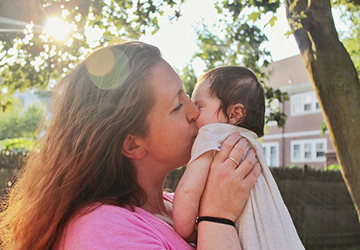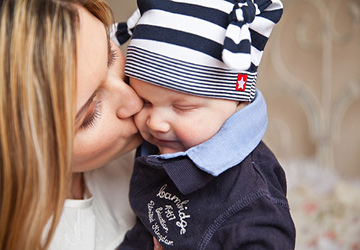The Truth About Vaccinations
Vaccination has been an essential source of immunization for people worldwide for many years. However, in recent years, with the rise of conspiracy theories and misinformation about vaccinations on social media, it has become increasingly difficult to separate fact from fiction. We understand if you need to think twice before vaccinating your child. We'll help you debunk the myths and learn the truth about childhood vaccinations so you can vaccinate your kids without worry!
According to the Centers for Disease Control and Prevention, approximately 4 million deaths are averted worldwide each year through childhood immunization alone. It is estimated that by 2030, immunizations such as hepatitis B and childhood measles could save millions of lives. If that statistic isn't convincing enough, let's look at the science behind vaccines that address misconceptions and FAQs that answer questions like which vaccines parents should get their children before birth.

What are vaccines?
Vaccines are given to children to boost immunity against severe and often life-threatening diseases. They are usually provided by injection but can also be given orally or nasally, such as the polio vaccine in South Asia. Vaccination of children is the safest and most effective way to prevent the spreading of infectious diseases. Read on to learn the truth about baby vaccinations.
How do vaccines work?
Vaccines trigger the body's immune response to recognize and fight certain infectious diseases. They contain small numbers of life, weakened or dead bacteria/viruses that do not cause illness but trigger an immune response in the body. This is how your body creates memory cells to remember to recognize and fight a particular disease-causing pathogen, and you can be exposed to it at any time later in life.
Are vaccines safe for your baby?
Yes, vaccinations are perfectly safe for your baby. Many parents are wondering about the truth about baby vaccinations, and rightly so. However, you can rest assured that vaccines will only be available after thorough testing and multiple clinical trials. Once approved, regulators will continue to monitor their safety.
Your child is much less likely to be harmed by vaccinations than vaccine-preventable diseases. Generally, the vaccines cause mild side effects such as rash, fever, or pain at the injection site. You should be aware that if you do not vaccinate your child, the downsides of contracting a life-threatening disease such as tuberculosis far outweigh the side effects your child will experience within a few days.
Will vaccines give my child autism?
Vaccines do not cause autism. It's a common misconception and an age-old myth that vaccinations cause autism spectrum disorder in young children. To date, no scientific theory supports the claim that vaccines cause autism. On the contrary, studies claiming this was discredited and debunked long ago.

Should I follow my child's vaccination schedule?
As a parent, the best way to protect your child from serious illness is to follow the vaccination schedule recommended by your doctor. Your child's vaccination schedule depends on the country where you live. Several experts developed it to give babies and children the best vaccinations at the best time, based on the diseases most prevalent in the community. Be aware that any time you delay getting a vaccine, you put your child at risk for certain conditions.
What is herd immunity, and how does it benefit my baby?
Getting vaccinated protects not only your child but also those around them. Herd immunity is when the most significant number of community members are vaccinated, making it harder for a disease to spread. By vaccinating your baby, you save his life and the lives of those who are too weak, too young, or too frail to vaccinate themselves.
Think of it this way: imagine your first child is perfectly healthy, but your second is too weak to be vaccinated. By vaccinating your firstborn when they are young, you can protect your other children or any older family members who do not do well when vaccinated.
Parents should get vaccinated before their babies.
If you're a parent about to have a baby, there are various things you need to consider to ensure a comfortable and healthy life for your unborn child. The best way to protect your baby from infectious diseases is to get vaccinated. Try to get the whole family immunized before the baby is born, so you only have to get vaccinated after birth. Parents should receive a list of vaccinations before the baby is born.
l COVID-19
l Influenza (flu)
l Pertussis (whooping cough)
l Rubella
l Varicella (chickenpox)
On the other hand, if you are planning to become pregnant, you should get the following vaccines before becoming pregnant.
l Hepatitis B
l Pneumococcal disease
The truth about childhood vaccinations
There are many benefits to childhood vaccinations. They protect against mumps, measles, rubella, polio, and whooping cough. These disorders can lead to severe complications, including infertility, hospitalization, and death. Because infants and young children are vulnerable, their vaccination will protect the broader community by stopping the spread of infectious diseases.
Despite the overwhelming evidence supporting vaccines, the many misleading articles and information on social media tend to weigh on the conscience of parents. Therefore, parents must understand the safety and effectiveness of any vaccine from an authentic source. Because the benefits of vaccination far outweigh the risks, deciding to vaccinate your children protects them, themselves, and the community.
Now that we know the truth about children's vaccinations let's work together to spread the word about vaccinations and keep our children and families healthy!


